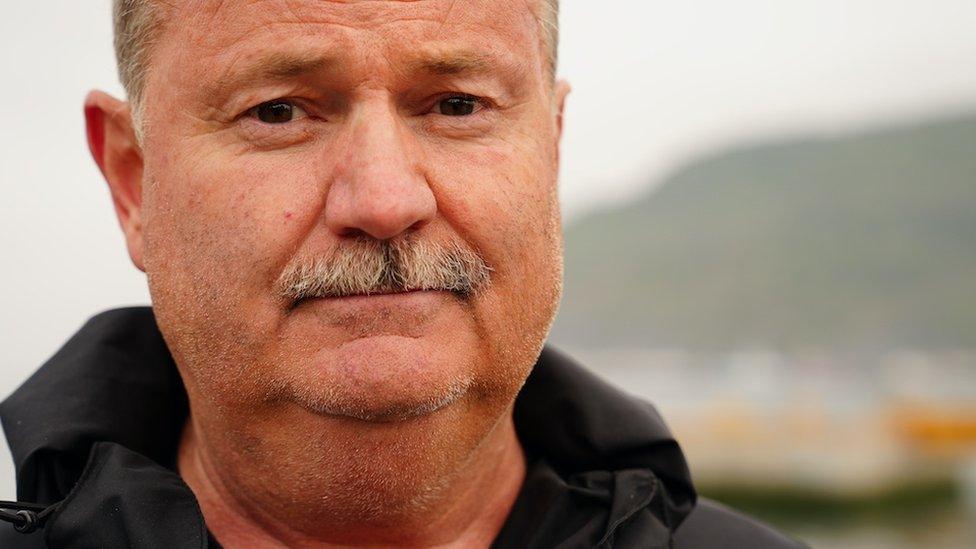Titan sub implosion: US Coast guard launches investigation into disaster
- Published
Watch: A definitive timeline of the Titan's last moments
An investigation into the causes of the Titan submersible disaster has been opened by the US Coast Guard.
Chief investigator Cpt Jason Neubauer said its priority would be recovering debris, and precautions would be taken in case human remains are found.
Speaking on Sunday, he also said the investigation would be able to recommend civil or criminal charges.
The Titan was on a dive to the Titanic wreck on 18 June when it imploded, killing all five people on board.
Cpt Neubauer told reporters in Boston that the US Coast Guard had convened its highest level of investigation.
He said it would would try to establish what caused the disaster, and make recommendations to prevent future tragedies. He added that it would be run jointly with Canadian, UK and French authorities.
The investigation is currently in its initial phase and efforts to recover the wreckage of the sub are ongoing. So far, five major pieces have been found 3,800m (12,467ft) below the surface in a large debris field near the bow of the Titanic.
Cpt Neubauer said investigators would be taking "all precautions" if they discover human remains.
He said the investigation could lead to tougher regulations and safety recommendations for submersibles, but could not confirm how long it would take to complete.
Once all evidence has been collected, Cpt Neubauer said investigators would likely hold a formal hearing to get witness testimony.
He added that interviews were already being conducted in the Canadian city of St John's, where the Titan's support vessel, the Polar Prince launched and towed the submersible into the North Atlantic Ocean.
Canadian investigators boarded the support ship on Saturday as part of their own investigation into the disaster.
US Coast Guard Rear Admiral John Mauger, who also spoke to reporters, was asked about the cost of the search and rescue operation but declined to answer.
He said it was not policy to charge for search and rescue and the service does not put a cost on human life or rescuing people in the "dangerous environment" of the ocean, adding "we always answer the call".
"We conduct disciplined operations with warranted risk to put our resources and lives at risk to save others. That's who we are."
Related topics
- Published25 June 2023

- Published23 June 2023

- Published23 June 2023
